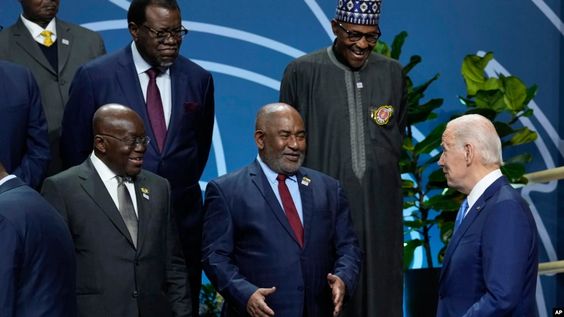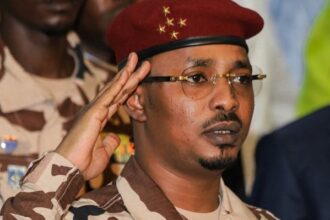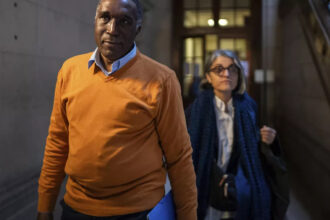After a meeting with 50 African leaders, U.S. President Joe Biden talked about how much the U.S. cares about the continent, urged African leaders to listen to what their people want, and hinted that he might pay a visit.
With goodwill, $55 billion in U.S. promises, and the following statement from Biden, the U.S.-Africa Leaders Summit came to an end on Thursday.
He responded, “As I told some of you, you asked me to visit your nations. Be cautious about what you wish for because, as I warned, I might show up. Every time, the destitute relatives appear. The wealthiest people are never present. The underprivileged arrive, eat your meal, and linger longer than they ought to. Well, I’m excited to see many of you back in your home nations.
He made no mention of the potential trip’s specifics.
It is a shocking joke coming from the leader of the richest country in the world, who spent most of Wednesday praising American promises to give $55 billion in aid to a continent with food shortages, inequality, and the bitter effects of colonialism.
Despite the humor, the American envoy to the UN told VOA that a presidential visit would have a significant influence.
According to Linda Thomas-Greenfield, who talked to VOA on the margins of the summit, “this will be an opportunity for the people of Africa—wwhatever countries, if the president decides to make such a visit—tthat they will genuinely see our commitment to them.”
US-Africa Summit Comes to a Close with Billions in Promises and Hints of Biden’s Visit
The more subdued diplomacy taking place at this summit, which includes pull-aside meetings between Secretary of State Antony Blinken and the leaders of Ethiopia and Congo—bboth of whom are involved in ongoing conflicts—sstands in contrast to these huge gestures and lofty pledges. The U.S. “urged quicker implementation” of a recent peace agreement and “access to the conflict zones by international human rights monitors” during meetings with Ethiopia’s prime minister, according to the State Department.
Blinken also met with the leaders of the powerful oil nation Angola in Southern Africa and Senegal, a dependable partner in West Africa, whose president serves as the chairwoman of the African Union.
Analysts say that the U.S. is trying to work with a variety of African partners on problems where they can find common ground, no matter how well they have done in the past.
According to Cameron Hudson, an analyst on African peace, security, and governance at the Center for Strategic and International Studies, “Washington is trying to diversify its relationships on the continent and not make them dependent on any one leader or any one group of countries because what we have seen is that these countries remain fragile and a strategic partner today could be engulfed in civil war tomorrow.” He used Zoom to talk to VOA.
“A critical period for global democracy”
During what the White House describes as a “critical period for democracy globally,” Biden also summoned the presidents of the Congo, Gabon, Liberia, Madagascar, Nigeria, Sierra Leone, and Sierra Leone to a secret meeting on Wednesday. There, they discussed their approaching elections.
Biden said in public that he wanted more Africans to be on the G-20 and U.N. Security Council. He also brought up the problems with some leaders.
He remarked, “As leaders, our people inspire us.” They make us aware of opportunities that are at hand. If we cooperate, the possibilities are endless. They provide us with the necessary unpleasant truths. We also occasionally have a hard time listening. They put the onus on us to uphold the principles set forth in so many of our foundational documents and to be deserving of the accountability entrusted to us by that sacred trust.
Some older ears find that message difficult to hear. Paul Biya, from Cameroon, is 89 years old. Both Muhammadu Buhari of Nigeria and Denis Sassou Nguesso of the Republic of Congo are 79 years old. On a continent where the median age is only 18, many of these men—and all but one African head of state are men—were born long before their countries attained independence.
Other than full wallets and pleasant experiences, what will they bring back to their native countries?








